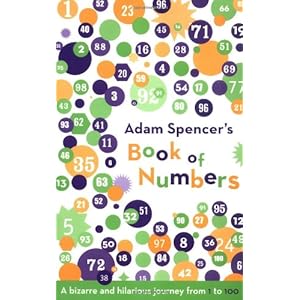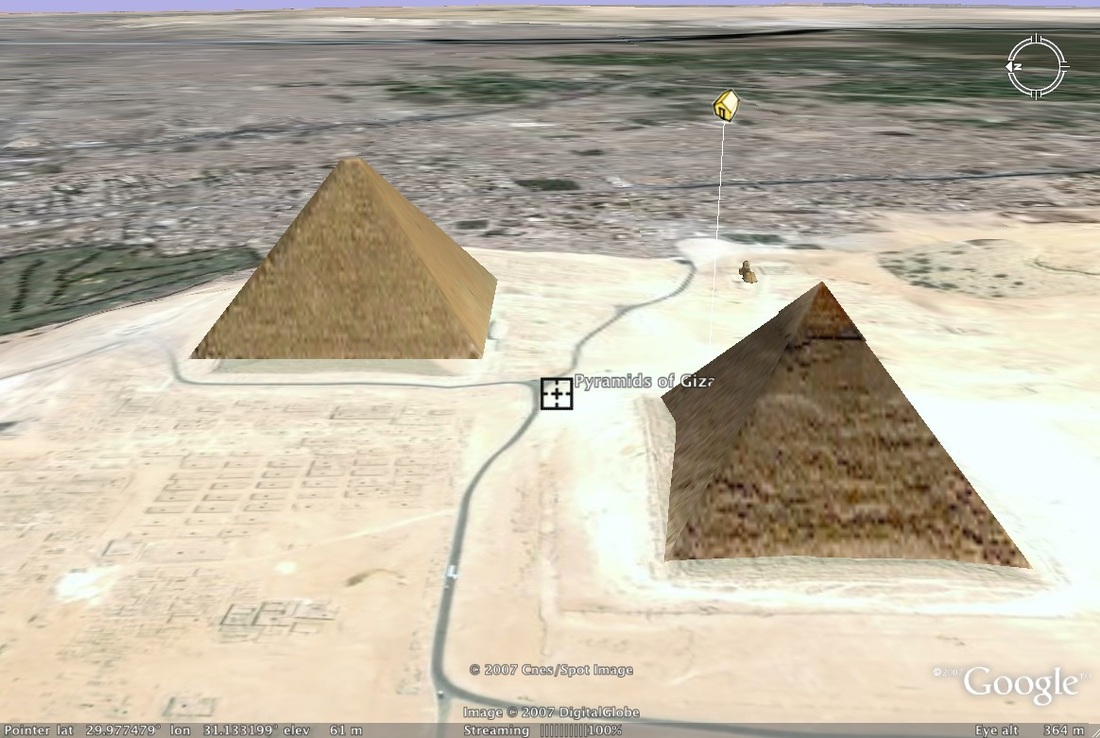 I really like Adam spencer. Maybe it's because he has a Phd in math but chooses to be a morning radio DJ. Or maybe because he is really good at taking complex ideas and making them understandable by most humans (usually in a humorous way). Here is his TED talk on prime numbers. Another great offering is his Book of Numbers where he looks at all the mathematical properties (and oddities) of the first 100 numbers.
I really like Adam spencer. Maybe it's because he has a Phd in math but chooses to be a morning radio DJ. Or maybe because he is really good at taking complex ideas and making them understandable by most humans (usually in a humorous way). Here is his TED talk on prime numbers. Another great offering is his Book of Numbers where he looks at all the mathematical properties (and oddities) of the first 100 numbers. I am a big fan of having part of an assessment being done with technology. Having taught math for several years in a computer lab I would regularly have part of the test done on the computer. I like how Amy Gruen mixed the use of cards and iPads running Desmos to do just that. Specifically here when it comes to transformations but you could see that this could be adapted to just about any topic.
I am a big fan of having part of an assessment being done with technology. Having taught math for several years in a computer lab I would regularly have part of the test done on the computer. I like how Amy Gruen mixed the use of cards and iPads running Desmos to do just that. Specifically here when it comes to transformations but you could see that this could be adapted to just about any topic.
Curriculum Tags: MBF3C, MCF3M, MCR3U, MCT4C, MAP4C, MHF4U
Real World math is a site that uses the power of Google Earth and Google Sketchup (both free apps) to bring math to the real world. With lessons that are as simple as estimation to as complex as intersection of planes in 3D (with volume, line graphs and more in between). One small caveat. As a teacher you have rights to the full lessons but you have to request a password first. So you fill out a small form and they email you one. Simple as that. Thanks to Paul Georges for this one
Curriculum Tags: All
http://www.realworldmath.org/
 I love this series who's limit is e. Shown very nicely here on Desmos. I especially like the fact that in the table of values you can see the series being built.
I love this series who's limit is e. Shown very nicely here on Desmos. I especially like the fact that in the table of values you can see the series being built.
Curriculum Tags: MCR3U, MHF4U
https://www.desmos.com/calculator/g0wfrqghzz
https://www.desmos.com/calculator/g0wfrqghzz
Having good questioning skills is not something you are born with. It is an acquired skill. Fear not. Here is a blog post that will give you 26 ways you can switch up your questions.
Curriculum Tags: All
http://mathforum.org/blogs/max/26-questions-you-can-ask-instead/
http://mathforum.org/blogs/max/26-questions-you-can-ask-instead/
 You can always count on Yummy Math for quality resources. Here are a few of their more recent ones. As always the handout is free but to get the editable version and solutions you need to be a member.
You can always count on Yummy Math for quality resources. Here are a few of their more recent ones. As always the handout is free but to get the editable version and solutions you need to be a member.This one is about the amount of caffeine in various brands if coffee.
Curriculum Tags: Gr7, Gr8, MDM4U
http://www.yummymath.com/2013/how-much-caffeine/
http://www.yummymath.com/2013/how-much-caffeine/
 This next one deals with a good topic for students. Does it pay to go to school. It may start out as if its a data management prompt (which it could be) but you can see how this can turn into something more when you deal with the wage values over the span of decades (and perhaps include interest calculations)
This next one deals with a good topic for students. Does it pay to go to school. It may start out as if its a data management prompt (which it could be) but you can see how this can turn into something more when you deal with the wage values over the span of decades (and perhaps include interest calculations)Curriculum Tags: Gr7, Gr8, MCF3M, MCR3U, MBF3C, MDM4U
http://www.yummymath.com/2013/does-it-pay-to-get-educated/
 This last one combines slope and Pythagorean theorem when talking about slopes of mountain trails. Since it has slope, this could be used in grade 8 as an extension or be modified to focus mainly on Pythagorean Theorem.
This last one combines slope and Pythagorean theorem when talking about slopes of mountain trails. Since it has slope, this could be used in grade 8 as an extension or be modified to focus mainly on Pythagorean Theorem.Curriculum Tags: MPM1D, MFM1P, MFM2P,
http://www.yummymath.com/2013/steepness-and-fall-hiking/
 I have some mixed feelings about this site but agree with it in principle. Nix the Trix is a site that tries to address the prevalence of using "tricks" to teach math concepts. Think "move the negative to the other side and change the sign". I know that I have been guilty of teaching these in the past but I think I am evolving. By teaching these tricks we gain time in the short term perhaps but students only make those gains in the short term as well. That is, if they don't have the conceptual reason a "trick" works then its just that, a trick, and not a mathematic concept. Just one more rule to memorize with no meaning. No wonder we have to re teach so much from year to year. That being said this site tries to address these ideas in the form of an evolving Google Doc. Take a look.
I have some mixed feelings about this site but agree with it in principle. Nix the Trix is a site that tries to address the prevalence of using "tricks" to teach math concepts. Think "move the negative to the other side and change the sign". I know that I have been guilty of teaching these in the past but I think I am evolving. By teaching these tricks we gain time in the short term perhaps but students only make those gains in the short term as well. That is, if they don't have the conceptual reason a "trick" works then its just that, a trick, and not a mathematic concept. Just one more rule to memorize with no meaning. No wonder we have to re teach so much from year to year. That being said this site tries to address these ideas in the form of an evolving Google Doc. Take a look.Curriculum Tags: All
http://nixthetricks.com/
 I really love this first day activity. It uses the "What do you know/notice/wonder?" theme. First get them thinking about math in general, then your course, then at the end hit them with a few questions to show the skills they have. In the activity on this post he uses a picture of the ISS but on a similar activity he uses this picture of an underwater bridge. You can see the results of the activity here.
I really love this first day activity. It uses the "What do you know/notice/wonder?" theme. First get them thinking about math in general, then your course, then at the end hit them with a few questions to show the skills they have. In the activity on this post he uses a picture of the ISS but on a similar activity he uses this picture of an underwater bridge. You can see the results of the activity here.Curriculum Tags: All
http://mathteachermambo.blogspot.ca/2013/07/first-day-precalculus.html
Really quick one from Dan Meyer. Perfect as a Minds On when talking about transformations in grade 7 or 8. Of course there is no need to show students this video, just create your own and work the magic in your own classes.
Curriculum Tags: Gr7, Gr8
http://blog.mrmeyer.com/?p=16933
I like this as a way to introduce trig functions in MCR3U and MCF3M. Follow the link to see the full idea of the lessons. But watch the video to get a sense of how to introduce the concept.
Curriculum Tags: MCR3U, MCF3M
http://rationalexpressions.blogspot.ca/2013/09/the-first-three-days-of-trigonometry.html
Here is a great discussion starter about outliers
Curriculum Tags: MDM4U
http://untilnextstop.blogspot.ca/2013/09/heres-graph-that-makes-statement.html























